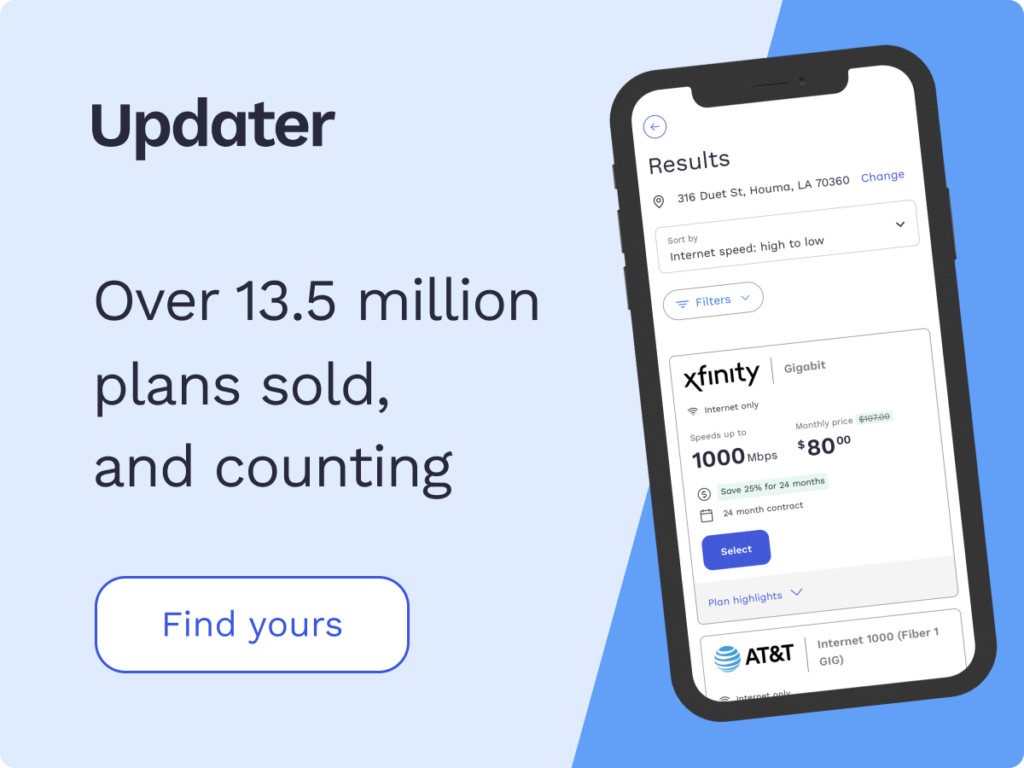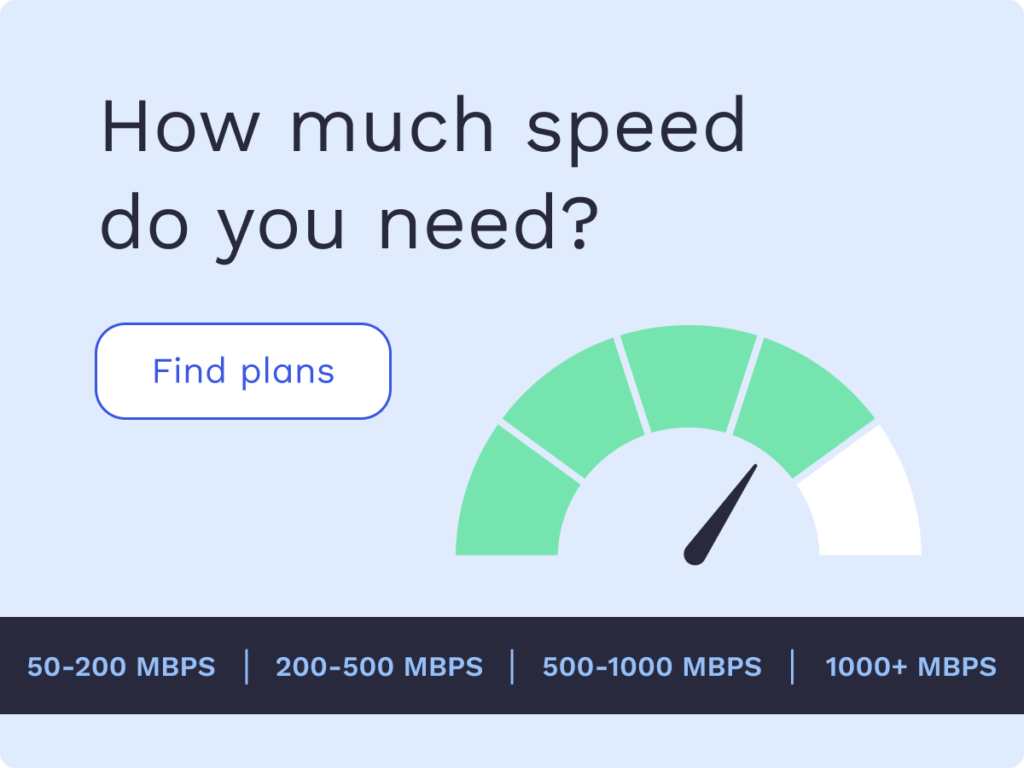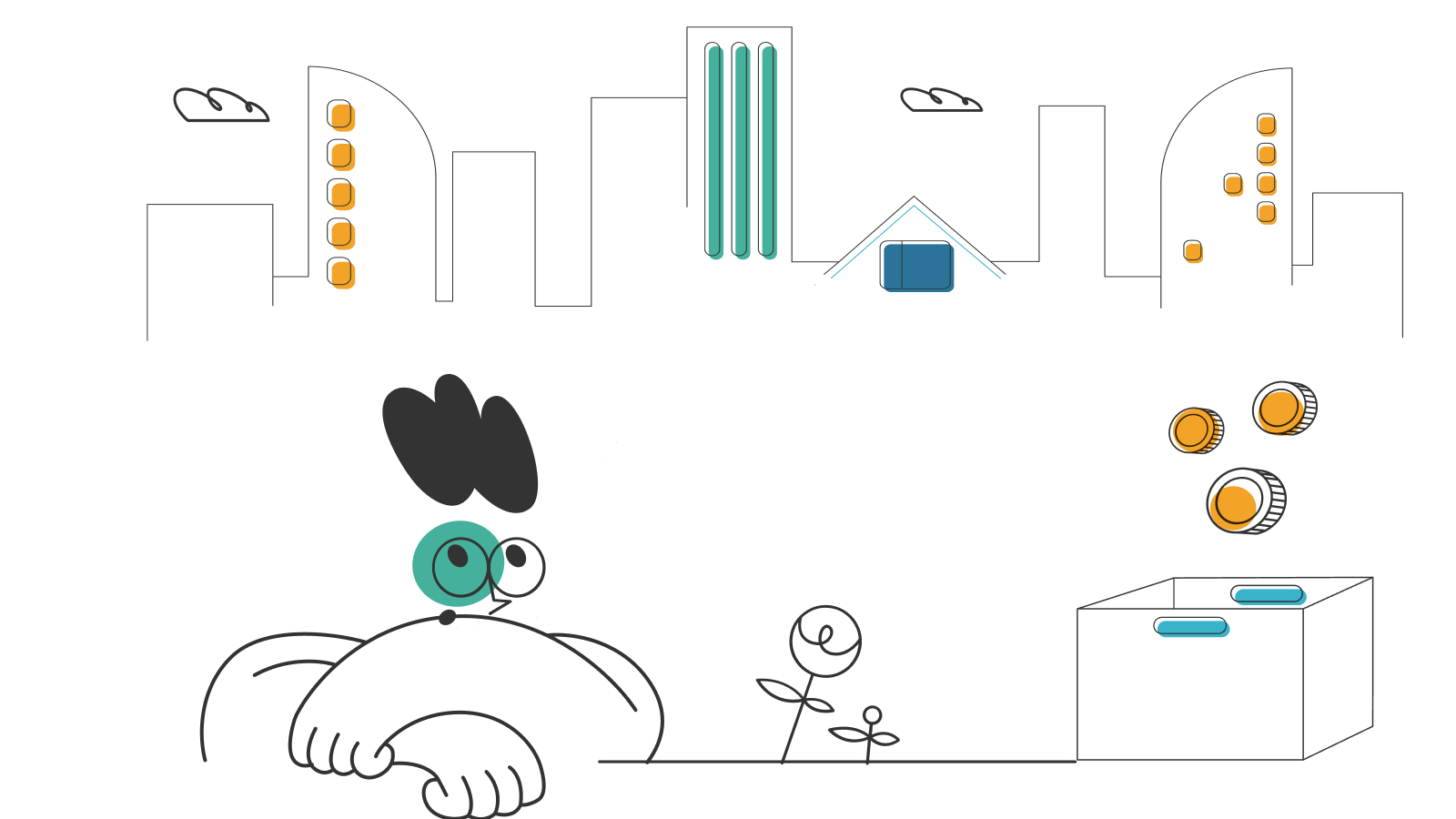How Much Does Internet Service Cost?

There’s no doubt that having internet service is almost non-negotiable these days. From paying bills online to streaming movies, completing schoolwork to working remotely, internet service is an integral part of our daily lives. But it can also be expensive and nailing down the true cost of internet services can be a bit tricky.
If you’re in the market for internet service and are trying to understand how much you’ll truly be paying per month once you commit, or if you already have service and are trying to figure out ways to save, we’re here to help. We’ve gathered all the details you’ll need including average costs from top providers, factors that drive up costs, and hidden fees to be aware of, as well as a few ways you might be able to save money on your next bill.
- What is the average cost of internet in the US?
- What factors drive up the cost of internet?
- Ideas for lowering your monthly internet bill
What is the average cost of internet in the US?
With so many different internet service providers (ISPs), types of internet (fiber, DSL, cable, satellite, etc), and speed options, you may be wondering what the average cost of internet is for US households and how US prices compare to the rest of the world.
According to the most recent Cost of Connectivity report, which was published in 2020, the average monthly cost of internet for a home in the US was $68.38. This is higher than the average in Asia ($62.41) and Europe ($44.71). But even the average US price varied dramatically in different locations. For instance, the average cost of internet per home in Los Angeles, CA was $40.88, while in Atlanta, GA the average cost of internet per home was $105.36. The reason behind this shift is largely attributed to competition among ISPs (or a lack thereof in this case.) The fewer ISPs competing to serve an area, the higher the average internet price per home.
And what, you may be asking yourself, is the culprit behind these varying costs? According to the report – it’s all the “ancillary” fees (in other words, extra fees) that ISPs are known for that drive up costs. And with a lack of competition in some areas, they can kind of do whatever they want.
Additional costs like installation, equipment rental, overage charges, and price increases after a promotional period all drive the average cost of internet up. This is why it’s important for anyone in the market for internet services to be fully aware of what the true cost of their monthly internet will be. Many ISPs talk about their “starting at” monthly prices – but other important details are often buried in the fine print. That’s why we’re here to help you know what to look for.
What factors drive up the cost of internet?
The type of plan you choose
The type of plan you choose including the speed, whether or not you secure a promotional price, and the type of internet connection will all impact the cost of your monthly internet bill.
- Speed: In general, the more speed you want, the more money you’re going to pay each month.
- Promotions: Depending on which ISP you sign up with, you may or may not receive promotional pricing which can last anywhere from a few months to a few years. But it won’t last forever, so it’s important to be aware of what the price will increase to after the promotional period ends.
- Type of internet connection: Fiber plans, which typically offer much faster speeds, are often more expensive than cable or DSL plans – while satellite internet options (especially if you live in a very rural area) have higher prices and slower speeds.
Installation/activation
Installation and/or activation fees may also drive up the cost of your internet. The cost depends on a number of factors, including the ISP you choose as well as if there is an option to self-install or not. Some ISPs may offer free or discounted installation and activation costs during certain promotions.
Competition (or lack thereof)
If an ISP is the only, or one of few, internet option in an area – they can pretty much do what they want. In fact, there are currently no FCC regulations in place that require ISPs to disclose their fees upfront and there’s even less incentive for an ISP to do so if there is little competition in a market.
On the other side of the coin, areas with higher competition among ISPs offer plan prices that are an average of $13.28 to $29.08 less per month compared to areas with fewer ISPs competing.
Lack of proper infrastructure
In relation to the way that lack of competition leads to higher prices, areas with fewer ISPs competing for customers are also less likely to invest money in improving the infrastructure that supports the internet service. For instance, upgrading from DSL to cable or from cable to fiber. Studies show that only when an ISP is faced with potentially losing market share to a competitor with faster speeds or better prices are they likely to invest in better infrastructure in order to ultimately lower the cost of their plans.
Monthly equipment rental fee
When you sign up for internet service, you will be provided with equipment to lease and most ISPs will charge you a monthly rental fee for that equipment. The upside of using the equipment provided to you is that you’ll be sure the equipment works with your plan and you won’t be responsible for repairs if something goes wrong.
On the other hand, the equipment you’re provided will likely not be state-of-the-art. In fact, it will likely be fairly outdated and often used. And no matter how long you stay with the ISP and pay monthly rental fees, you’ll never own the equipment outright.
Data overages
If you’ve chosen an internet plan that has monthly data limits, you will be charged data overage fees on your bill. A majority of ISPs charge about $10 for every additional 50GB of data you use and cap overage charges around $100 per month. Make sure you know what the data limits and overage charges are prior to signing on the dotted line.
Early termination charges
If the plan you choose requires a contract, be sure you are aware of potential cancellation costs if for some reason you have to terminate your contract before the end of your agreement. Early termination fees are often a set dollar amount for every month you did not fulfill. For instance, if you cancel your contract 10 months early and the ISP charges $20 per month you did not fulfill, you’ll owe a $200 cancellation fee.
Equipment non-return fee
That equipment that you’ve been paying a monthly rental fee on is the property of the ISP. No matter how long you’ve been paying, you’ll be required to return the equipment at the end of your contract. Equipment non-return fees can be hundreds of dollars so it’s a good idea to make sure you know what the time limits and requirements are for returning your equipment.
Ideas for lowering your monthly internet bill
If you already have internet service and are unhappy with the monthly cost, there are a few things you can try to lower your bill.
Buy your own modem
If your ISP allows you to provide your own modern instead of renting their equipment, you could consider purchasing your own. Although this is a bigger cost upfront, you will save the monthly rental fee and you will own your equipment outright.
Not all modems and routers are created equally, though, so make sure you do your research before making a purchase. Generally, you want to make sure the router meets three basic requirements:
- DOCSIS version 3.0 or 3.1 (If your internet speed is 1Gbps or more, go with a version 3.1 model.)
- Up-speed and down-speed channel rating of at least 16 x 4 (The first number represents download channels. The higher that number, the faster the download speeds the modem can support.)
- Security rating of at least WPA2
Most importantly, make sure that your ISP will support the modem you choose. If you’re unsure, you can search for supported modems online or call your ISP directly and ask.
Ask about special promotions
If you’re interested in a plan but are unsure if any promotions are available, ask your ISP. If you are able to secure a promotion, make sure you verify the length of the promotion and what the price will be after the promotion ends.
If the promotional period on your internet plan has already come to end, ask if any other promotions are available. And if you’re beyond your original contract term or on a month-to-month plan, sometimes mentioning the word “cancel” is enough to encourage the ISP to offer you a promotion even if they were reluctant to do so before.
See if you qualify for subsidized rates
If you currently qualify for a government subsidy program such as SNAP or Medicaid, or if you have a child in grades K-12 who qualifies for the National School Lunch Program, you may qualify for subsidized internet rates. Though you most likely won’t find a subsidized plan with speeds faster than 50Mbps, the cost for internet service could be as low as $5/month.
Change internet plans
Most ISPs offer several different tiers of speed options at different prices. If your monthly internet bill is more than you would like to pay, consider switching to a plan with a lower speed in order to save money.
While some experts believe that having 25-50Mbps of speed per person is a good rule of thumb, with more homes using more devices, consider the activities being performed instead. For instance, surfing the web and answering emails uses 5-10Mbps per device. Viewing social media uses about 10Mbps per device. Video conferencing uses 10-20Mbps per device, and online gaming and streaming videos use 25-35Mbps per device.
If you determine your current internet plan is providing more speed than you actually need, consider speaking with your ISP about switching to a lower speed, lower-cost plan.
Change internet providers
If you’ve tried to negotiate with your current ISP and have not been able to come up with any ways to lower your current bill, your best option may be to change internet providers. But, make sure you’re not locked into a contract with your current ISP before doing so. Weigh the pros and cons of ending your contract early and paying cancellation fees versus the cost savings of changing to a different, lower-cost provider. And of course, if you decide to switch internet providers, make sure you are well aware of all their costs so that you don’t end up paying more than you planned to.
Now you’re ready to save some money
Internet is becoming less of a luxury and more of a must-have in our homes these days, which means it’s important to have internet service that can support our day-to-day lives. But cost is a major concern for many. Although ISPs are great about advertising their “starting from” or “as low as” price points for plan options, extra fees, and price increases generally take more digging to find.
Before you commit to an internet plan, make sure you do your research. Ask questions. Figure out what the installation costs, monthly rental fees and promotional time frames look like. Consider buying your own modem versus renting and make sure you don’t go overboard on your speed plan if it’s not necessary. With a little bit of research on the front end, you will surely save yourself some money (and possible frustration) on the back end.
*Pricing varies by location and availability. Speeds may vary. All prices subject to change; for current pricing and availability visit our internet service page. Prices as of 3/25/22.
Disclosure | Updater articles are based on our own data and research, independent from partner relationships. We are not compensated by partners for information and opinions presented here. Our Editorial Terms of Service can be found here.














